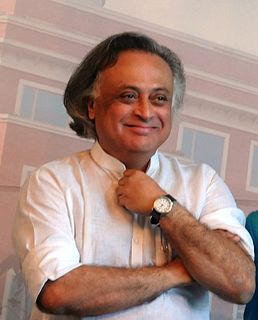A Quote by Amartya Sen
South Korea from a country that had relatively little primary education became close to universal literacy in the course of 25, 30 years, in a way trying to replicate what Japan had done earlier. They were learning to some extent from the Japanese experience too. So I think, in a sense, the East Asians were following a path, which all other countries including South Asia could follow but chose not too.
Quote Topics
Asia
Asians
Became
Chose
Close
Could
Countries
Country
Course
Done
Earlier
East
East Asia
Education
Experience
Extent
Follow
Following
Had
Including
Japan
Japanese
Korea
Learning
Literacy
Little
Other
Other Countries
Path
Primary
Primary Education
Relatively
Replicate
Sense
Some
South
South Asia
South Korea
Think
Too
Trying
Universal
Way
Were
Which
Years
Related Quotes
South Korea at the end of the Second World War had a very low level of literacy. But suddenly, like in Japan, they determined they were going in that direction. In 20 years' time, they had transformed themselves. So when people go on saying that it's all because of perennial culture, which you cannot change, that's not the way the South Korean economy was viewed before the war ended. But again within 30 years, people went on saying there's an ancient culture in Korea that has been pro-education, which is true.
It was good to launch the economy in the '50s. Japan did this; China did this; even South Korea did this. All the East Asians did this - import substitution. I think all countries followed import substitution in the '50s and in the '60s, but I think by the '70s, countries were getting out of that first phase of the strategy.
The higher education has always appealed to the South Asian social leaders across all the countries in South Asia. But primary education has been neglected. The oddity, by the way, is if you look at the contrast in India, there are some areas like Kerala where there's a long history of educational development.
There may be countries [where] there's no gender inequality in schooling, even in higher education, but [where there is] gender inequality in high business. Japan is a very good example of that. You might find cases in the United States where at one level women's equality has progressed tremendously. You don't have the kind of problem of higher women's mortality as you see in South Asia, North Africa, and East Asia, China, too, and yet for American women there are some fields in which equality hasn't yet come.
I think the regime in North Korea is more fragile than people think. The country's economic system remains desperate, and one thing that could happen for example would be under a new government in South Korea, to get the South Korean government to live up to its own constitution, which says any Korean who makes it to South Korea, is a Korean citizen. A citizen of the Republic of Korea. And you could imagine the impact that would have inside North Korea if people thought, "If I could get out and make it to South Korea, I could have a different life."
Living with a nuclear North Korea could give its leaders the confidence to act more aggressively versus South Korea. It could also, over time, drive both South Korea and Japan, as well as countries farther afield such as Vietnam, to reconsider their non-nuclear postures. The stability of a critical region of the world would suddenly be in doubt.
In my generation, this was not the first occasion when the strong had attacked the weak.Communism was acting in Korea just as Hitler, Mussolini, and the Japanese had acted ten, fifteen, and twenty years earlier. I felt certain that if South Korea was allowed to fall, Communist leaders would be emboldened to override nations closer to our own shores.
There are many reasons that universities in East Asia have not reached the positions that they had hoped for. After all, we must remember that modern East Asia did not begin with Confucius. In fact the experience of modern education in East Asia is relatively short and granted that time scale, many universities are doing fine.
It [also] lives on its history, now, to some extent: its achievements [ of the Commonwealth] in Rhodesia and South Africa, which were enormous. And they'll live on that for some time, I guess. And there is still - I'm out of touch with it now, of course - but I still think there is a degree of cooperation at the economic level, to some extent, with the more developed countries helping the less developed. How substantial that is now, I simply am not versed.
I think East Asian countries, I think they're very fortunate to have Buddhism survive as a strong influence because right from the time when Buddha himself, 2,500 years ago, made the point about the importance of education, and the word "Buddha" also means enlighten[ed] or educated. So all the Buddhist countries, not only Japan and Korea and China and Hong Kong and Thailand but also even Burma and Sri Lanka, had a higher level of education.





































